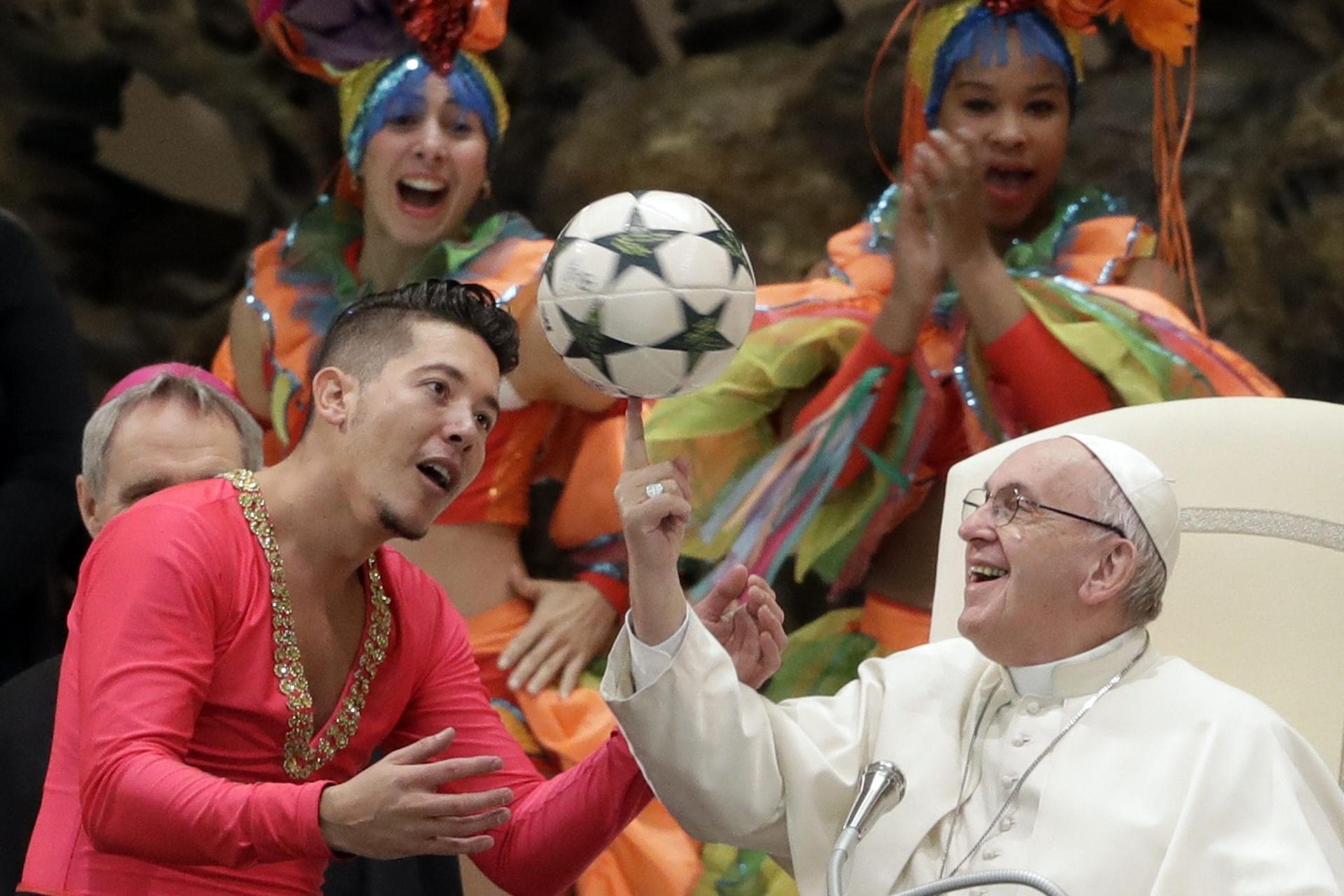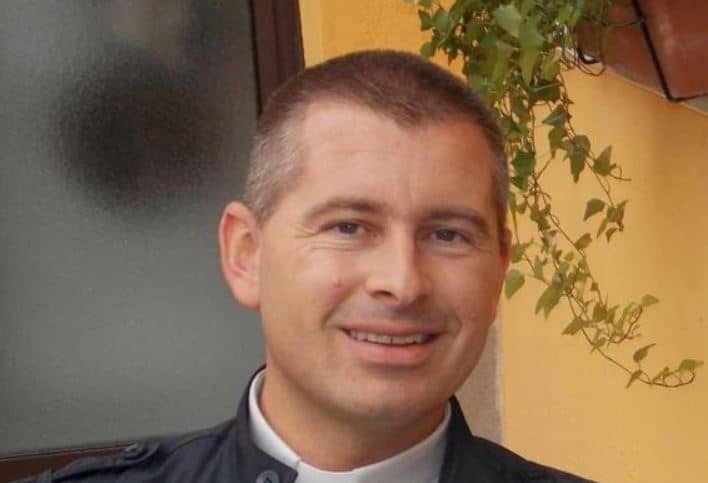ROME – Controversy surrounds Italian soccer’s “Super Cup” in Saudi Arabia this Wednesday, which limits the attendance of single women. As the Catholic Church also attempts to corner-kick its way into the world of athletics, the fracas illustrates the complicated relationship between religion and sports.
“One of the great topics of discussion in the sports world is that of human rights,” said Father Melchor José Sanchez de Toca y Alameda, under-secretary of the Pontifical Council for Culture, in an interview with Crux Jan. 14.
This issue “has resurfaced now that the Italian Super Cup will be held in a country which, in many aspects, does not meet the standards of human rights protection,” added Sanchez, who is also the president of the newly launched Vatican Athletics team.
RELATED: Vatican’s Olympic dream moves closer with launch of athletic association
The question of human rights, he explained, is not limited to ensuring that everyone has access to sports, but also that human rights are protected in every dimension of the sports world – including the security of construction workers, safeguarding minors and promoting inclusion.
The highly anticipated game between AC Milan and Juventus will take place at the King Abdullah Sports City in Jeddah, Saudi Arabia. The stadium is divided in two sections, one for singles – limited only to men – and one for families – which is accessible to both men and women. It remains unclear whether single women will be permitted to attend the match, and where they would be allowed to be.
The arrangement reflects Saudi Arabia’s religion-based laws, which by Western standards restricts women’s rights in their ability to move independently, to drive a car and even to attend sporting events. Women were allowed to watch games only one year ago in the country, and there remain strict rules regarding sections, access and parking.
While the Italian embassy to Riyadh confirmed that unaccompanied women will be allowed to reach and attend the Super Cup, the issue once again raised the debate of how much influence religion has over sports and vice-versa.
“Faith and sports are two worlds that don’t communicate that often,” Sanchez said, adding that the two have a lot to learn from each other.
“Sports can help the Church a lot,” he said. “The great Christian educators understood that sports can be a powerful educational instrument,” which can help develop and strengthen human values and team work.
At the same time, he added, “the Church can provide a healthy dose of moral vitamins, which can help counteract the corruption of money, which is at the root of doping and set games as well as millions and millions of dollars in bribing that do not benefit the community.”
In September 2016, the Pontifical Council for Culture sponsored a Global summit on sports and faith at the Vatican, where Pope Francis called out those who take advantage of sports for their own gain.
“May sports be a healthy competition, a joyous and selfless participation,” the pope said. “No to manipulation, corruption and exploitation of sporting events.”
RELATED: At Olympics, Vatican showcases bond between faith and sports
Today many Catholics are condemning what Amnesty International called “sports-washing,” meaning an opportunity for countries hosting global sporting events to present a positive image despite their disregard for human rights.
In the case of Saudi Arabia, the treatment of women is not the only red flag, given the nation’s role in the conflict in Yemen and the recent murder of journalist and whistleblower Jamal Khashoggi. A trial against 11 people charged with the killing began at the start of January.
“It’s all right to work for integration, for interreligious dialogue, for the overcoming of communication barriers between peoples; It’s all right for sports to be one of the most immediate tools,” said Carlo Costalli, president of the Italian Christian workers movement, “but the decision by our Serie A and by the General Sports Authority to play the next Super Cup in Saudi Arabia leaves me frankly flabbergasted.”
Speaking to local media, Costalli recalled that the Argentine soccer team refused to attend games in Jerusalem following the controversial decision by the United States government to move its embassy from Tel Aviv.
“While Jerusalem was refused for higher political reasons, today we stand before a far more disconcerting decision: That of holding the match between Juventus and Milan in a shady country,” he said, criticizing the silence of the Italian political and sporting elites.
There are serious economic interests at play between Saudi Arabia and the Serie A, which both signed a three-year deal amounting to over $27 million allowing the country to host the Super Cups.
Objecting to the deal was also Italian Interior Minister Matteo Salvini, who heads the country’s right-wing populist party Northern League.
“It’s sad, it’s disgusting that the Italian Super Cup is being played in an Islamic country where women cannot go to the stadium if they are not accompanied by men,” said Salvini, who is an avid AC Milan fan.
“I won’t be watching the game,” he said.
But the head of the Italian National Olympic Committee (Coni), Giovanni Malagò, who recently signed a deal with the Vatican Athletics team, called out politicians and institutions who object to the Super Cup while still benefiting from cordial relations with Saudi Arabia.
“Who has something to say? Individual citizens? They may be right, but if those criticizing are entities that continue to have institutional and commercial ties to that country then the criticism is hypocritical,” Malagò told reporters after a press conference at the Vatican last week.
From a micro standpoint, Sanchez said he hopes the inclusion of women, immigrants and people with disabilities on the team of Athletica Vaticana, the Vatican’s first very own sports association, may be a spark that inspires further inclusion.
In that sense, he added, the Church can offer “a signal and a direction” to the world of sports.
















